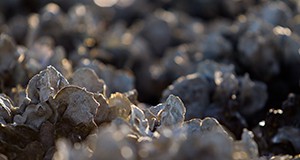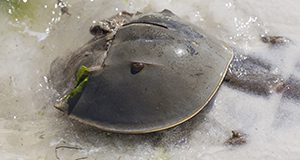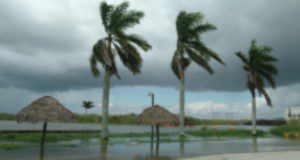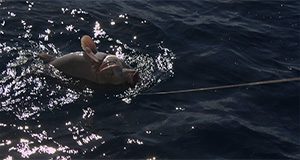American horseshoe crabs (Limulus polyphemus) look prehistoric and in fact really have not changed very much in the 200 million years they have been around. This 3-page fact sheet written by Savanna Barry, Holly Abeels, and Shelly Krueger and published by the UF/IFAS Program in Fisheries and Aquatic Sciences, School of Forest Resources and Conservation tells the story of these interesting and valuable “living fossils,” including their importance both to ecology and human medicine. It provides tips on how to find horseshoe crabs and a few ways you can help them.
https://edis.ifas.ufl.edu/sg190
Tag: Holly Abeels
Climate Change and Florida: Frequently Asked Questions
Climate change is considered one of the biggest challenges facing society. As global temperatures continue to rise, we are threatened by melting ice sheets, rising sea levels, and extreme weather events. Climate change is also something that the people in south Florida live with daily. Still, the science of climate change is complicated, leaving many in the region looking for trusted information about why climate should matter to them. The purpose of this new 8-page FAQ document is to provide answers to commonly asked questions regarding climate change. The questions come from south Florida residents and municipal workers concerned with the climate outcomes to their region. The FAQ address several areas of concerns, including the basic science behind climate change, the projected impacts to residents of south Florida, and actions that individuals can take to reduce their carbon footprints. Written by Joshua Papacek, Ashley Smyth, Holly Abeels, and Alicia Betancourt, and published by the UF/IFAS Department of Soil and Water Sciences.
https://edis.ifas.ufl.edu/ss682
Barotrauma and Successful Release of Fish Caught in Deep Water
If you catch a fish you are not going to keep, help it survive and get back to the deep! Throwing back your unwanted catch is good practice because healthy released fish can live to grow and reproduce, which benefits the fish population and the future of fisheries. But deepwater fish can have trouble getting back where they came from without a little assist from the angler. This 4-page fact sheet written by Betty Staugler, Holly Abeels, Angela Collins, Shelly Krueger, and Kai Lorenzen and published by the UF/IFAS Florida Sea Grant College Program describes barotrauma, a problem that, if left untreated, will kill otherwise perfectly healthy fish, and explains a few quick and simple methods to relieve fish suffering from barotrauma and help them get back home healthy and strong.
http://edis.ifas.ufl.edu/sg160
Frequently Asked Questions about Vibrio in Florida

Florida is a tropical paradise that attracts marine enthusiasts and seafood lovers from around the world. Its extensive waterways not only offer unique areas for us to explore but also provide essential habitat for marine life, including marine bacteria that keep the habitat in healthy balance by breaking down organic matter and providing food for larger organisms. One type of marine bacteria known as Vibrio sometimes causes infections and seafood sickness in people with weakened immune systems, but Vibrio should not keep Floridians and visitors from enjoying their favorite activities because Vibrio infections are rare and easy to prevent. This 7-page fact sheet written by Gabby Barbarite, Peter J McCarthy, Holly Abeels, and Anita Wrightwill and published by the Florida Sea Grant College Program will help you ensure that your time on the water is as safe and enjoyable as possible.
http://edis.ifas.ufl.edu/SG140


